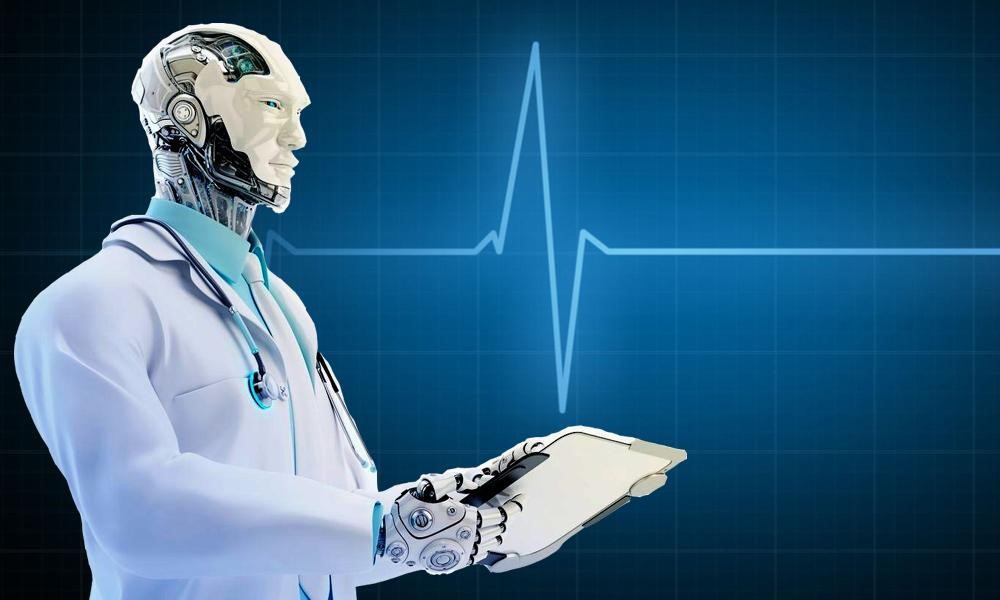Artificial intelligence is like the air around us, it is practically everywhere. From the palm of our hands, in the form of our smart watches and phones to our heads; MIT’s Alter Ego project is based on a cognitive helmet which allows humans to interact with machines in Natural Language, through the process of brainstorming – without speaking a word.
AI powered EHR has had many successes in the healthcare industry; based on a Chinese trial: An AI system programmed to aid brain scans, scored a higher score in accuracy as compared to its human counterparts. The patient which was predicted by the system to be revived from a coma, did indeed woke up. Whereas, the doctors who took part in this experiment had proposed totally different outcomes. According to their point of view, the patient was too far gone to be revived.
Similarly, IBM is developing a system based on the application of artificial intelligence which allows radiologists to quickly read through several x-ray documents and compare them with the medical records. This facility eliminates the possibility of errors in the diagnosis confirmed by the radiologists. Although the entire program is in its development phase, engineers at IBM are still working to increase its accuracy. There are plenty of other ways as well that artificial intelligence is transforming healthcare.
So how’s does AI’s integration with an EHR system work out?
Virtual Assistants:
EHR systems are incorporating AI into their architecture in the form of Virtual Assistants, which helps physicians in the day to day tasks of practice. Based on Dr. Steven Y. Lin’s research (Stanford university school of medicine) documentation tasks take up about 78% of the time spent on their EHR systems. Which amounts to a lot of productivity lost, that should be converted into efficient workflows. Virtual assistants facilitate physicians in rapid retrieval of patient data, in ordering prescription refills, dictating clinical notes etc. Through its application, users can hope to save a lot of their time.
Workflow automation:
According to healthcareitnews.com research, physicians experience an average of 4,000 key strokes daily due to documentation requirements. Such a hectic routine eventually leads to physician burnout, significantly affecting the quality of the healthcare delivered. Some vendors are offering features such as KPI dashboards which help in effective practice management, physicians can manage their workflows through a single platform. Machine learning techniques allow the use of adaptive learning, EHR systems are able to understand and address routine problems through the instructions provided. This facilitates the regulation of daily tasks which consume a lot of potential time.
Billing Assistant:
By analyzing patient records and the billing requirements, AI integrated EHRs can speed up the billing process manifolds. Based on the Centers for Medicare & Medicaid Services (CMS) report, billing errors resulted in $36.21 billion in improper payments in FY 2017. Machine learning and Natural language processing are assisting EHR systems in the retrieval of data from patient records, for the purpose of error-free billing. CPT codes which had to be memorized before, are now easily recognized from the ICD-10 database. This functionality helps in the rapid documentation and prevents the occurrence of billing errors.
Interoperability:
AI along with Blockchain technology can help the healthcare industry with the following interoperability challenges it faces today.
Information exchange between fellow physicians:
Organizations such as insurance companies tend to store data depending on their own ease; with different formats creating confusion for the physicians. AI coupled with Blockchain allows a standard database to be created from which data can be retrieved in real time, across different geographical locations.
A secure channel for information sharing:
Firstly, a lot of obstacles hinder the progress of true interoperability; such as technical difficulties etc. Secondly, the next major challenge faced by the stakeholders of the industry is the secure dispersion of data. Blockchain safeguards the data against any possible security breaches, whereas, Artificial intelligence aids in the compliance of such a fool proof data exchange system.
Generation of potential insights:
AI powered EHR systems enable physicians to analyze large sets of patient data with great ease, structuring and filtering the data as per the requirements of the user. Through the use of Blockchain and AI simultaneously, data is retrieved without the hassle of diving into the lists and lists of clinical notes. Although still in the developing phase, Blockchain and AI fused integration could prove to be beneficial for the entire healthcare industry.



